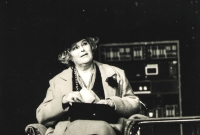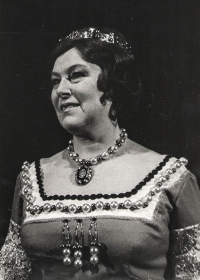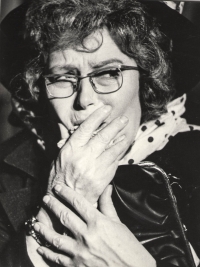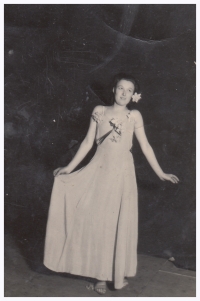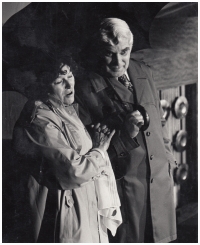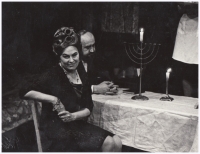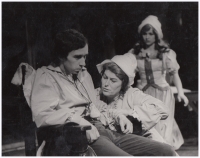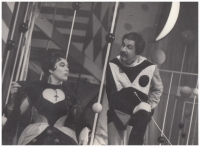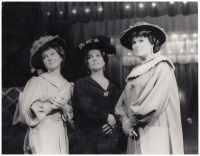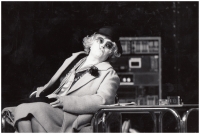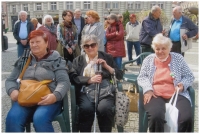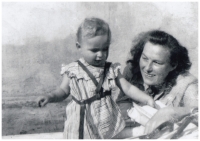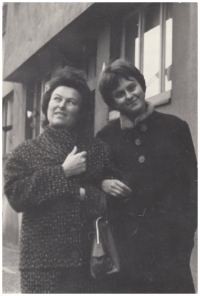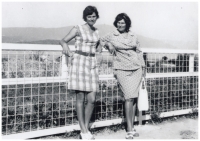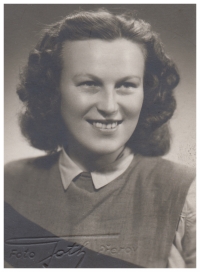When the Germans occupied us, heaven cried with us

Download image
Marta Kolesová, maiden name Svobodová, was born on March 2, 1923 in Dřetovice near Kladno. After general and burgher school, she trained to be a dressmaker. In Kladno, she experienced the occupation by the German army on March 15, 1939. For several months, she was in forced labour in the forests of Krivoklát, where she planted trees. She joined the left-wing resistance group Předvoj, which distributed illegal publications and helped persecuted families. In April 1945 she escaped an arrest. On May 9, 1945, she went to Prague with the soldiers of the Red Army, where she narrowly escaped death. On May 18, 1945, she joined the Communist Party. After retraining, she became a professional actress. She got her first job in Náchod, where she met her future husband, Radomil Koles. This was followed by engagements in Přerov, Opava, Šumperk, Nové Jičín and Hradec Králové, where she worked for almost thirty years. From 1982 she was a member of the Czechoslovak Union of Anti-Fascist Fighters, and after 1989 of the Union of Freedom Fighters. She did not welcome the fall of the regime in 1989, but made peace with it. In 2023, she lived in Hradec Králové and continued to be an active member of the Communist Party, the Union of Freedom Fighters and other associations.
